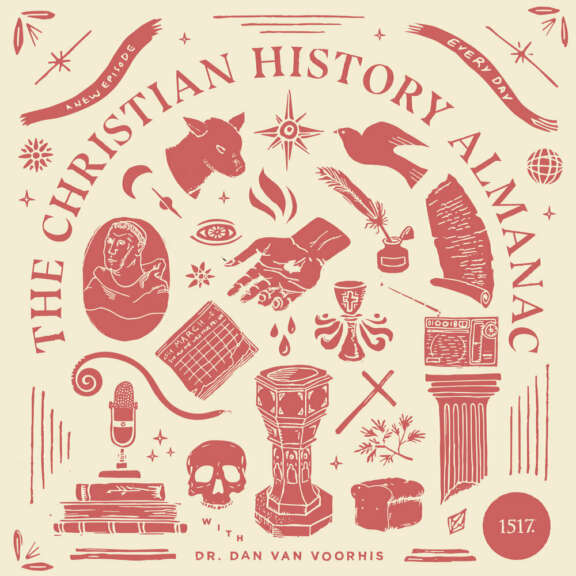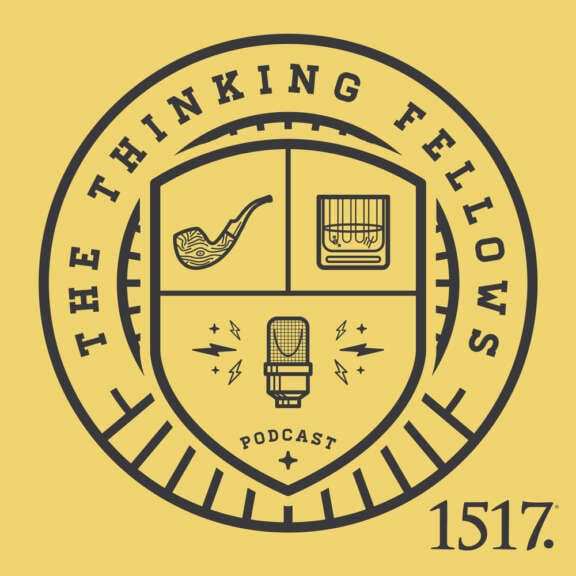Today, on the Christian History Almanac, we remember the mysterious and controversial reformer Andreas Osiander.
Podcasts
Each 1517 Podcast is dedicated to delivering Christ-centered content through weekly, monthly, and seasonal audio platforms. Listen online or on your favorite podcasting app.
Author
- All Authors
- Aaron Zimmerman
- Adam Francisco
- Amy Mantravadi
- Blake Flattley
- Bob Hiller
- Bradley Gray
- Brian W. Thomas
- Bror Erickson
- Bruce Hillman
- Caleb Keith
- Chad Bird
- Chris Rosebrough
- Christopher Gillespie
- Cindy Koch
- Craig Donofrio
- Dan van Voorhis
- Daniel Deen
- Daniel Emery Price
- Darrin Sheek
- David Andersen
- David Rufner
- David Zahl
- Debi Winrich
- Delwyn Campbell
- Donavon Riley
- Doug Klembara
- Edward Killian
- Elyse Fitzpatrick
- Erick Sorensen
- Flame
- Grant Klembara
- Gretchen Ronnevik
- Haroldo Camacho
- Jacob Smith
- Jared C. Wilson
- Jeff Mallinson
- Jeffrey Pulse
- Jessica Thompson
- Jim Nestingen
- Joel Fitzpatrick
- Joel Hess
- John Andrew Schreiner
- John Bombaro
- John T. Pless
- John W. Hoyum
- John Warwick Montgomery
- Katie Koplin
- Kelsi Klembara
- Ken Sundet Jones
- Luke Kjolhaug
- Magnus Persson
- Mark Mattes
- Matt Popovits
- Michael Berg
- Michael Horton
- Nick Lannon
- Paul Koch
- Peter Nafzger
- Philip Bartelt
- Raleigh Sadler
- RJ Grunewald
- Robert Kolb
- Rod Rosenbladt
- Ron Hodel
- Sam Leanza Ortiz
- Sarah Condon
- Sarah Crowder
- Scott Davis
- Scott Keith
- Steven Paulson
- Tanner Olson
- Troy Neujahr
- Uwe Siemon-Netto
- Wade Johnston
- William Cwirla
-
The Thinking Fellows give readers a short list of books they find essential for understanding Lutheranism.
-
They Call Me Rhetorical Working Man. In this episode, we discuss Luther‘s teaching on justification and vocation while reading James Nestingen’s essay on the same topic. We cover feudalism, the rise of capitalism, how the reformation took hold in the cities in Germany, the three estates, the two kingdoms, church life versus social life, and the consequences for Christians of not being grounded in faith and prayer as detailed by Luther, in particular, in his explanations to the petitions of the Lord Prayer.
-
Kelsi chats with author, Tara-Leigh Cobble, about her love of Scripture as well as her book, the Joy of the Trinity.
-
Weekend Edition for September 28-29, 2024
-
Craig and Troy listen to the final piece of Dr. Rod Rosenbladt's classic lecture on the relationship of the church, Christ, and those who are estranged from the one but not the other.
-
In episode TWO HUNDRED AND NINETY-ONE, Mike, Jason, and Wade discuss realism and nominalism?
-
Dr. Rod Rosenbladt's classic lecture on the Sad and Mad ones who have become alienated from the church has many rich treasures to offer us.
-
In episode TWO HUNDRED AND NINETY, Mike, Jason, and Wade discuss the the old saying, “The gospel assumed is the gospel denied.”
-
In this week's episode, Scott, Bruce, and Caleb discuss the doctrine of election. They emphasize the importance of God's electing through his Word.
-
Craig and Troy return to the font of Dr. Rod Rosenbladt's teaching, and in the process we remember why we must continually return to the font of Christ's grace.
-
Reign in Blood. In this episode of Banned Books, we discuss the Lord’s Supper while reading The Last Supper: The Testament of Jesus by Reinhard Schwarz. We discuss why the distinction between a covenant and a testament is of utmost importance for exegesis, sacramental theology, and Christian life, why promise and gift are central to Luther’s understanding of the sacrament, and how rejecting the sacrament leads to a denial of Christ.





